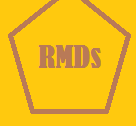 It’s been a while since we ran a piece on RMDs, so here are excerpts from an unusually informative one from thinkadvisor.com headlined Advanced Retirement Planning: Avoiding the Post 70 ½ RMDs.
It’s been a while since we ran a piece on RMDs, so here are excerpts from an unusually informative one from thinkadvisor.com headlined Advanced Retirement Planning: Avoiding the Post 70 ½ RMDs.
“Planning to begin retirement account required minimum distributions (RMDs) after age 70 ½ is a boilerplate element of nearly every client’s retirement income strategy—even if the client has taken steps to reduce his or her RMDs. Despite this, advisors might easily overlook the more nuanced rules that can help a client plan to avoid RMDs even after reaching age 70 ½.
“Clients who plan to continue working past age 70 ½ may have no need to begin taking RMDs at the traditional time—in fact, RMDs may significantly increase a working client’s tax liability if his or her earnings remain constant during post-70 ½ working years. However, the rules that allow a client to avoid post-70 ½ RMDs are extremely specific, making competent professional advice a critical component in formulating a strategy to help avoid the tax hit that RMDs during working years can create.
Avoiding Post-70 ½ RMDs: The Rules
“While the general rules governing retirement accounts require nearly every individual account owner to begin taking RMDs by April 1 of the year following the year in which he or she turns 70 ½, an exception exists for employer-sponsored 401(k) accounts owned by employees who continue working past age 70 ½. If the plan allows—and the client must be careful to ensure that the plan does allow the exception—a client who leaves funds in the 401(k) can avoid RMDs if he or she remains employed with the employer who sponsors the plan.
“Importantly, the current employer must sponsor the 401(k)—a client cannot change employers and defer RMDs beyond age 70 ½ if a former employer sponsors the relevant 401(k). However, it does not appear that the IRS provides a concrete definition of what it means to continue working past age 70 ½, so it may be possible for the client to continue working on a reduced hours basis and still defer his or her RMDs past the traditional required beginning date.
“This exception does not apply to clients who are 5% owners of the business sponsoring the retirement plan, or if the plan is an IRA (whether a traditional, SEP or SIMPLE IRA—RMDs do not apply to Roth IRAs during the original account owner’s lifetime).
“Clients who own a portion of the business sponsoring the 401(k) must be careful of the constructive ownership rules that apply when determining whether he or she is a five percent owner. Ownership interests held by certain members of the client’s family (i.e., his spouse, children, parents, etc.) and by certain entities in which the client holds a controlling stake will be added to the ownership interest that the client holds directly in determining whether the 5% threshold has been crossed.”
